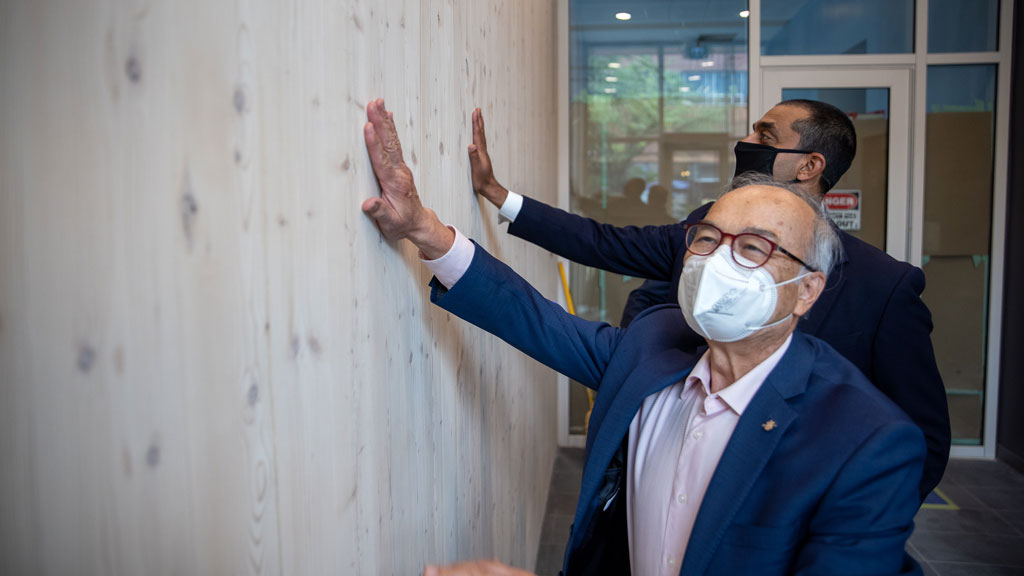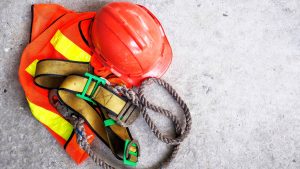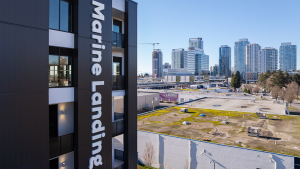Rapidly changing situations around COVID-19, the war in Ukraine, corporate culture and more are presenting risks and opportunities in the forestry sector.
That was the message from Robert Johnston, special adviser on energy, climate and resources for Eurasia Group, at this year’s BC Council of Forest Industries conference in downtown Vancouver. Eurasia Group is a consulting company that specializes in assessing political risks.
“Four years ago, there were many topics I talked about then: energy, climate, trade policy. But I didn’t think I would be talking about COVID or war in Ukraine,” said Johnson. “This shows there is no predictability.”
Johnson said his list of top risks for the forestry sector include COVID, China, Russia, a green transition and corporations losing the culture wars.
“While these are interesting, what you care about is what it means for our sector,” said Johnson. “The linkages are impacts to accessing capital, supply chains, environmental and climate policy, energy input costs and global macroeconomic conditions. These are all things that will affect forest products directly.”
COVID in China
Johnson explained that larger outbreaks in China will mean tougher lockdowns, more state intervention and a dissatisfied population.
“China’s problems add to the disruption of supply chains which will present ongoing risks across the world,” said Johnson, highlighting massive shipping backups in the waters around Shanghai.
He added China is also facing an exhausted growing model, an over-leveraged and unbalanced economy with an aging population.
“While things aren’t perfect in the U.S. and Canada, we are probably in better shape than China at the present time,” he said.
War in Ukraine
Johnson said he was not expecting tensions in Ukraine to escalate to war.
“We thought it would be a challenge but that while there was a rise of war, diplomacy would prevail,” he said.
He believes the most likely scenario in the short term is a stalemate where neither side can establish full military control.
“As a result, we could not only see a humanitarian catastrophe for Ukraine but a ramping up of sanctions,” he said. “I wouldn’t rule out a ceasefire, but it doesn’t seem to be a likely case at this point.”
In the longer-term, Johnson believes the war could end with a ceasefire where Russia gains some territory. There could also be regime change in Russia, but this could be positive or negative depending on who takes power.
“Would it be a Putin-like person or a swing to a more Western-oriented government?” said Johnson. “The only thing that seems clear is multinationals are not going back to Russia any time soon. Supply chain disruptions will continue and I think it has become structural.”
The situation could revive B.C.’s LNG projects. Johnson explained natural gas has no spare capacity and is trading at almost $300 a barrel with disruptions in the Russian supply.
“I think there will be another round of interest in LNG projects here in B.C. and it does raise that question of LNG being a long-term solution to climate change,” he said.
Climate action
Finding the balance between climate action and inflation will be challenging but inevitable said Johnson.
“The forestry sector will have to manage traditional ecological and climate concerns as well as a more complex global marketplace with rising geopolitical risk,” he said, noting it provides opportunity.
Mass timber construction, biofuels and carbon capture at production facilities have major contributions to make. It also presents an industry for oil and gas workers to go to during the green transition.
He explained Canada is positioned far better than its U.S. neighbour.
“The U.S. is 10 years behind in terms of environmentalism and Indigenous issues,” he said. “They are in much worse shape than people assume.”
He cited the softwood lumber disputes that have been going on for decades. With policy-making in Washington broken, he doesn’t expect to see it resolved any time soon.
“It’s not just divided Senate, but they have a divided country,” he said. “Everything is so hyper-polarized that the oxygen to do work on things like softwood lumber is limited. Will (Joe) Biden take his precious limited supply to deal with this? I hate to paint such a bleak picture but it’s the reality. U.S. capacity to deal with policy is very limited.”
Johnson stressed despite the many challenges the industry faces, B.C. forestry should not underestimate the opportunities associated with energy transition.
“We are well down the road on Indigenous consultation and that model combined with clarity on climate policy is important for global investors,” said Johnson.











As the article says, “While these are interesting, what you care about is what it means for our sector,” , and for most of BC this means the forest health, community safety, viable communities, long term jobs in tourism and recreation that DO NOT remove all forests and replace with tree farms, but leave them intact for their essential services and ecosystem benefits, Perhaps this risk assessor can first assess the risk of more floods, dirty drinking water, extirpated caribou, mudslides, and increased risk of fire hazards. These are the existential risks MOST of BC is concerned with, not concerned with risks of COVID, China, Russia, a green transition, a green transition would be to value a tree if left standing not only as toilet paper of a 2×4. If your bank assessed the amount of risk involved to my water quality after industry clear cuts my watershed they would not give me a mortgage, or life insurance, TOO RISKY!. A doctor would not operate on a person or even a dog with the same level of risk as clear cutting an entire province’s available Old Growth, planes would not leave the ground if there was a 40% chance of crash for flooding, as there is after many clear cut valleys.. We need to rethink the entire sector, climate change is here and we have more urgent values. Industry needs to start assessing the existential risks.